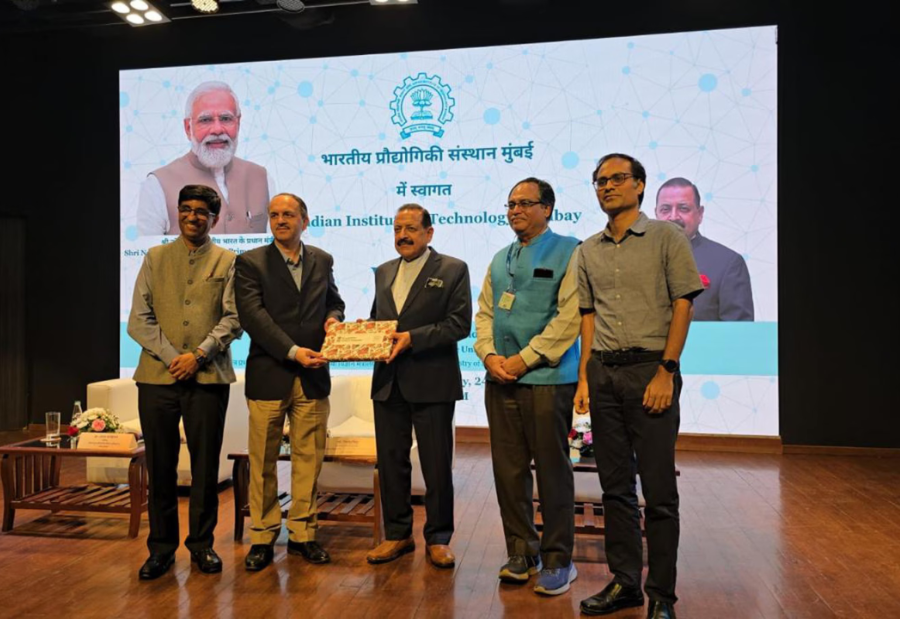The government has announced plans to support 100 engineering colleges by providing Rs 1 crore each to set up quantum research laboratories for teaching undergraduate minor programmes. This was confirmed by the Department of Science and Technology Secretary Prof Abhay Karandikar during an event at the Indian Institute of Technology Bombay.
He said the Department of Science and Technology is also preparing to create a quantum algorithms technical group to strengthen research, encourage start ups, and support technology development in this field.
“We are going to set up teaching labs in hundred engineering colleges and institutions for teaching undergraduate minor programs. In fact, we have already received more than 500 proposals for this, of which we will be selecting about 100,” Karandikar said.
He added that the Department of Science and Technology is proud of the progress made under the National Mission on Interdisciplinary Cyber Physical Systems and the National Quantum Mission, noting that the Indian Institute of Technology Bombay continues to hold a strong leadership role. He highlighted the institute’s Technology Innovation Hub for its work with start ups, new technologies, and development of Indian language large language models.
Under the National Quantum Mission, four hubs located at the Indian Institute of Science Bengaluru, Indian Institute of Technology Madras, Indian Institute of Technology Delhi, and Indian Institute of Technology Bombay have recorded significant progress in recent months. The quantum sensing hub at the Indian Institute of Technology Bombay has shown particularly strong results.
The Minister for Science and Technology Dr Jitendra Singh also announced two new major quantum fabrication and central facilities under the National Quantum Mission during his visit to the Indian Institute of Technology Bombay. With a combined investment of Rs 720 crore, these facilities will be set up at the Indian Institute of Technology Bombay and the Indian Institute of Science Bengaluru to support the development of made in India quantum chips and sensors.
Two smaller facilities will also be created at the Indian Institute of Technology Delhi and the Indian Institute of Technology Kanpur. Until now, India depended on facilities abroad for quantum device fabrication, which slowed down the development process.
These new facilities will be open to academic institutions, industry, start ups, MSMEs, and strategic sectors. They will help speed up fabrication, research, prototyping, and small scale production.
Dr Singh said the move will strengthen India’s capabilities in quantum computing, sensing, superconductivity, cryogenic engineering, photonics, healthcare technologies, and green energy devices. He highlighted the importance of liquid helium in advanced scientific applications and noted that the new cryogenics facility will reduce experimental costs through an efficient helium recovery system.
He added that India must expand its cryogenics infrastructure as global demand for quantum technologies rises. He said the progress made at the Indian Institute of Technology Bombay shows how collaboration between academia, government, and industry can build a strong scientific ecosystem for future technologies.
Also read: Viksit Workforce for a Viksit Bharat
Do Follow: The Mainstream formerly known as CIO News LinkedIn Account | The Mainstream formerly known as CIO News Facebook | The Mainstream formerly known as CIO News Youtube | The Mainstream formerly known as CIO News Twitter
About us:
The Mainstream is a premier platform delivering the latest updates and informed perspectives across the technology business and cyber landscape. Built on research-driven, thought leadership and original intellectual property, The Mainstream also curates summits & conferences that convene decision makers to explore how technology reshapes industries and leadership. With a growing presence in India and globally across the Middle East, Africa, ASEAN, the USA, the UK and Australia, The Mainstream carries a vision to bring the latest happenings and insights to 8.2 billion people and to place technology at the centre of conversation for leaders navigating the future.




